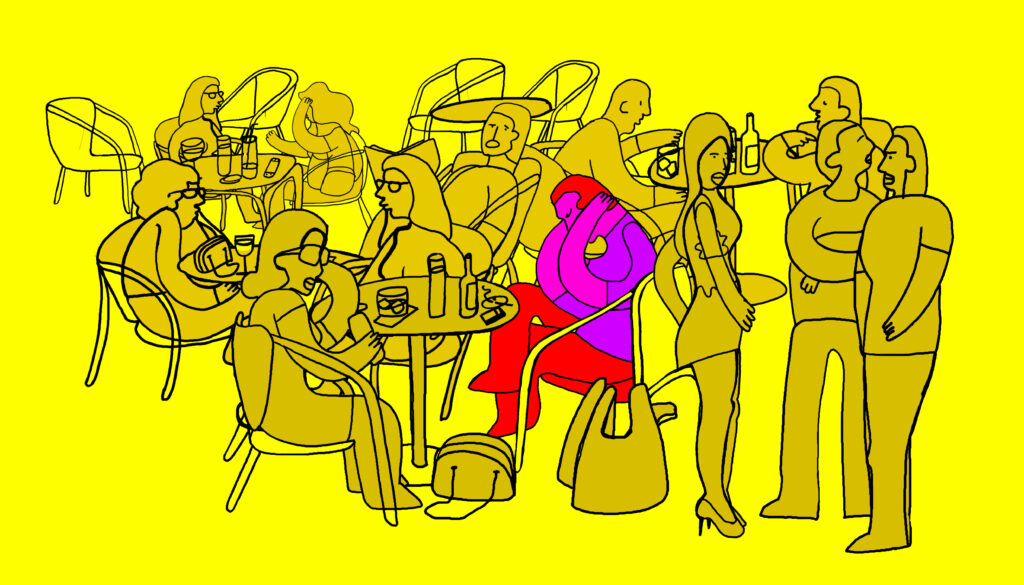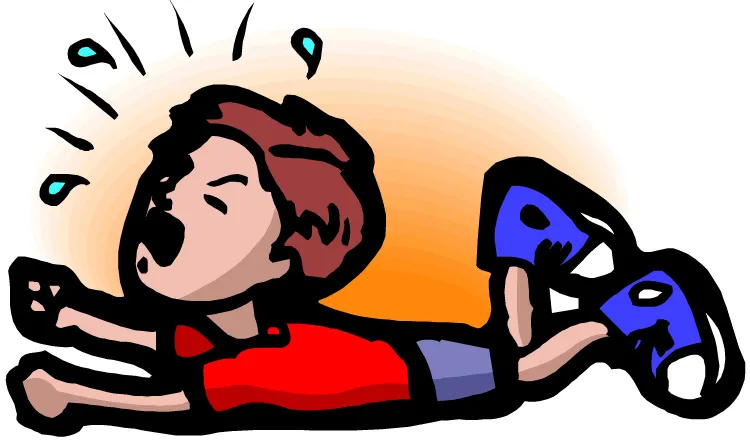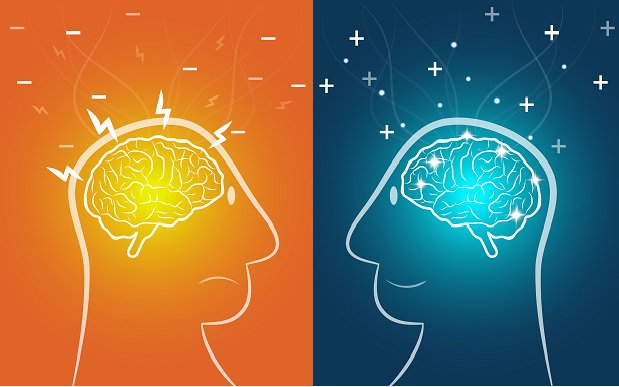Addiction is an overwhelming urge to repeatedly seek out a substance or engage in a particular activity, despite harmful consequences, and long-lasting changes in the brain.
It is considered a brain disorder because it involves functional changes to brain circuits involved in reward, stress, and self-control. Addictive behaviors are influenced by an interplay of biological, genetic, neurological, psychological, and environmental factors.
From a spiritual and energetic perspective is understood as a manifestation of deeper imbalances within the individual’s energy system and spiritual well-being.
By addressing the root causes of addiction and providing combination of medical, behavioral, spiritual and social support; also providing support for mental health issues and fostering healthy coping mechanisms, individuals can achieve long-term recovery and improve their overall quality of life.
Let’s examinate various influences:
Biological Factors:
Genetics: Some people have a genetic predisposition to addiction. Certain genes can make individuals more vulnerable to addictive behaviors.
Brain Chemistry: Addictive substances and behaviors can alter brain chemistry, particularly the dopamine pathways. Dopamine is a neurotransmitter associated with pleasure and reward. When the brain is repeatedly exposed to an addictive substance or behavior, it can lead to changes in brain structure and function, making it difficult to feel pleasure from anything else.
Neuroplasticity: The brain’s ability to adapt and change, known as neuroplasticity, can reinforce addictive behaviors. Over time, the brain forms strong neural pathways that prioritize the addictive substance or behavior, making it harder to break the habit.
Psychological Factors:
Coping Mechanism: Addiction often serves as a coping mechanism for dealing with stress, trauma, anxiety, depression, or other emotional pain. The addictive substance or behavior provides temporary relief or escape from these feelings.
Personality Traits: Certain personality traits, such as impulsivity, sensation-seeking, and a tendency towards negative emotional states, can increase the risk of addiction.
Mental Health Disorders: Individuals with mental health disorders such as depression, anxiety, or bipolar disorder are at a higher risk of developing addictions as they may use substances or behaviors to self-medicate.
Social Factors:
Peer Pressure: Social environments and peer influences can play a significant role in the development of addictions. Individuals may start using substances or engaging in addictive behaviors due to pressure or the desire to fit in.
Cultural Norms: Cultural attitudes towards substance use and behaviors can influence addiction. In some cultures, certain substances or behaviors are more socially accepted, increasing their prevalence.
Environmental Factors:
Accessibility: Easy access to addictive substances or behaviors increases the likelihood of addiction. This includes the availability of drugs, alcohol, gambling opportunities, and even the pervasive presence of digital technology.
Life Circumstances: Stressful life events, such as trauma, loss, or major life changes, can trigger addictive behaviors as individuals seek comfort or escape.
Socioeconomic Status: Socioeconomic factors, such as poverty, lack of education, and limited access to healthcare, can contribute to the development of addictions. Individuals in lower socioeconomic brackets may experience higher levels of stress and fewer resources for healthy coping mechanisms.
Developmental Factors
Adolescence: The adolescent brain is still developing, making it more susceptible to addictive behaviors. Experimentation during adolescence can lead to the establishment of addictive patterns that persist into adulthood.
Early Exposure: Early exposure to addictive substances or behaviors can increase the likelihood of developing an addiction. This includes exposure to parental substance abuse, which can normalize these behaviors for children.
The Psychology Behind Addictions
Reward System: The brain’s reward system is central to understanding addiction. Addictive substances and behaviors stimulate the release of dopamine, creating a sense of pleasure and reinforcing the behavior. Over time, the brain’s natural ability to produce dopamine is diminished, leading to dependence on the addictive substance or behavior for pleasure.
Conditioning:
Classical and operant conditioning play roles in addiction. Through classical conditioning, certain cues or environments become associated with the addictive substance or behavior, triggering cravings. Operant conditioning reinforces the behavior as individuals continue to seek the rewarding effects.
Tolerance and Withdrawal:
With repeated use, individuals develop tolerance, needing more of the substance or behavior to achieve the same effect. When they try to stop, withdrawal symptoms can occur, which are often unpleasant and drive individuals back to the addiction.
Cognitive Distortions:
Addicts often develop cognitive distortions, such as denial, rationalization, and minimization, to justify their behavior. These thought patterns make it difficult for them to recognize the severity of their addiction and seek help.
Trauma and PTSD: Individuals who have experienced trauma or have post-traumatic stress disorder (PTSD) may turn to addictive behaviors as a way to cope with painful memories and emotions.
Attachment Issues: Insecure attachment styles developed during childhood can lead to difficulties in relationships and emotional regulation, potentially contributing to addictive behaviors as a means of seeking comfort and stability.
Spiritual and Existential Factors
Lack of Purpose: A lack of meaning or purpose in life can contribute to addictive behaviors. Individuals may use substances or behaviors to fill a void or distract themselves from existential concerns.
Spiritual Disconnection: A sense of spiritual disconnection or a crisis of faith can lead to addictive behaviors as individuals seek to numb their feelings of emptiness or loss of direction.
Addictive Behavior and Chakras
From an energetic standpoint, addictive behaviors are often seen as imbalances or blockages within the body’s energy centers, known as chakras. These imbalances can be linked to unresolved issues from present or past lives that disrupt the flow of life force energy (also known as prana, chi, or ki) through the chakras. When one or more chakras are blocked or out of balance, individuals may turn to addictive substances or behaviors as a way to temporarily alleviate the discomfort caused by these imbalances.
Sacral Chakra (Svadhisthana):
The Sacral Chakra, located below the navel, is associated with emotions, pleasure, and creativity. Imbalances or blocked here can result in addictions to substances, sex, and other pleasures as individuals seek to fill an emotional void or escape from emotional pain.This is because the Sacral Chakra governs our ability to experience joy and connect emotionally with ourselves and others.
May also lead to emotional instability, mood swings, and certainly manifest as a dependency on external sources to fill an internal void.
People may turn to addictive substances or behaviors as a way to manage overwhelming emotions, seeking temporary relief or escape from their emotional distress and making it challenging to cope with feelings like sadness, anger, or loneliness. Therefore addictive behaviors as a way to manage or escape these overwhelming emotions.
This energy center plays a big rol when it comes to addictions.
Associated with pleasure, desire and the ability to enjoy life’s experiences, the second chakra seek pleasure and gratification when out of balance. This is because the person may feel a lack of internal joy and seek to fill this void with external stimuli.
Of course, relationships get affect as well, for example unhealthy attachment patterns, codependency, or a lack of meaningful connections. Addictive behaviors can develop as substitutes for genuine emotional connections and intimacy, providing a temporary sense of connection or relief from feelings of isolation.
Since is also associated with sexuality and sensuality, Issues in this area can lead to addictive behaviors related to sex, addiction to pornography or other forms of physical pleasure. People might use these behaviors to cope with or escape from deeper issues related to their sexual identity or experiences; unresolved issues related to intimacy, self-worth, or trauma. These behaviors often stem from a distorted or unmet need for intimacy and connection.
The Solar Plexus Chakra, known as Manipura, also plays a significant role in influencing addictive behavior due to its association with personal power, self-esteem, and willpower.
Located in the upper abdomen, in the area of the stomach, imbalance or blockages here might bring insecurities about the self, lack of willpower.
Is the center of our self-esteem and self-worth. Individuals often experience feelings of inadequacy, low self-worth, and lack of confidence. These self-perceptions can drive people to seek external validation and comfort through addictive substances or behaviors.
Personal power and control, willpower and discipline, emotional regulation, autonomy and independence, are also associated with this chakra so a weakened, imbalance or blockage here can result in:
-Struggles with self-control and impulsivity, making it difficult to resist cravings and urges associated with addiction.
-Feelings of powerlessness and a lack of control. Addictive behaviors can develop as a way to regain a sense of control or to assert power in situations where individuals feel helpless.
-Difficulty managing emotions such as anger, frustration, and anxiety. To cope with these overwhelming emotions, individuals might turn to addictive behaviors as a form of self-medication or emotional escape.
-Individuals might feel overly dependent on others or external factors to feel secure and validated. This dependency can manifest as addiction, where individuals rely on substances or behaviors to feel whole or independent.
The Third Eye Chakra, or Ajna Chakra is traditionally associated with intuition, perception, and higher consciousness. It is located in the center of the forehead, just above the space between the eyebrows. Although the Solar Plexus Chakra is more directly connected to addictive behaviors, the Third Eye Chakra is also very important when it come to addictions. Energetically , this two chakras are deeply link to each other.
Associated mainly with perception and reality, intuition and awareness, emotional and psychological Insight, escapism and imagination, and spiritual insight, when blocked or imbalance, besides mental disorders, here we can find:
-Distorted perceptions and difficulty in recognizing or accepting reality. This can result in an individual using addictive substances or behaviors as a means to escape from or distort their perceived reality, masking deeper issues or dissatisfaction.
-Poor decision-making, lack of self-awareness, and a diminished ability to understand or address the root causes of one’s behavior. As a result, individuals may turn to addiction as a way to cope with unacknowledged inner conflicts or discomfort.
-Confusion, unclear thinking, and difficulty processing emotions. This lack of clarity may make individuals more susceptible to addictive behaviors as they seek ways to numb or distract themselves from unresolved emotional or psychological issues.
-To escape into addictive substances or behaviors as a form of fantasy or avoidance. The need to escape from reality or to seek solace in illusions can drive the development of addiction.
-Feel disconnected from their spiritual path or purpose. This disconnection can lead to existential angst or a search for meaning through addiction, as individuals seek fulfillment or answers in substances or behaviors.
Treating addictions involves a varied approach that addresses the physical, psychological, emotional, and spiritual aspects of the condition. By combining conventional therapies with holistic practices, individuals can address the multifaceted nature of addiction, heal on multiple levels, and build a strong foundation for long-term recovery. Each person’s path to recovery is unique, and a personalized treatment plan that considers their specific needs and circumstances is essential for achieving lasting success. Some start point could be:
Medical Supervision: For many addictions, especially to substances like alcohol or drugs, a medically supervised detox is often the first step. This process helps manage withdrawal symptoms and ensures safety during the initial phase of recovery.
Expert Help: Seeking help from addiction counselors or therapists who specialize in addiction can provide personalized treatment and support.
Continuous Care: Ongoing therapy, support groups, and check-ins can provide continued support and accountability throughout the recovery process.
From an energetic point of view, addictions are seen as symptoms of deeper imbalances within the energy system. Healing these imbalances involves practices that restore harmony and flow within the chakras. This can include:
Energy Healing: Practices like Reiki, acupuncture, and crystal healing can help clear blockages and restore balance to the chakras.
Meditation and Mindfulness: These practices promote self-awareness and emotional balance, helping individuals understand and address the root causes of their addictions.
Chakra Balancing: Techniques such as yoga, sound therapy, and aromatherapy can support chakra healing and overall energy balance.
Nutrition A healthy, balanced diet supports overall health and can help in stabilizing mood and energy levels during recovery.
Physical Health: Exercise improves physical health, reduces stress, and enhances mood, which can be beneficial in the recovery process.
Understanding addiction from a spiritual and energetic perspective highlights the importance of addressing the underlying imbalances and promoting well-being. By restoring harmony within the chakras and energy system, individuals can find a deeper sense of healing and transformation.
Mantra Literally Means Mind Protection. Mantras Can Help Us To Go Through Different Situations By Enhancing a Clear and Strong Mind.
HA KA RA
Specifically for addictive behaviour thus low self-esteem
TRAM WARANA HUNG PATH SOHA
Disturbing thoughts thus disconnection with sense of life
108 times in the morning. 108 times in the night.




